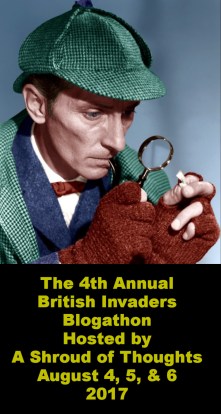Kes has a forecasted structure (so long as you can understand the Yorkshire accents). Teenager David Bradley is about to leave school and head into the workforce. His older brother, played by Freddie Fletcher, works in the coal mines and Bradley knows he doesn’t want that career. They share a bed in their mom’s house. Fletcher bullies both Bradley and their mother (Lynne Perrie). Bradley’s situation at school isn’t any better; he’s on the teachers’ list for bullying and his absentmindedness–and occasional smart mouth–gets him in trouble with classmates.
Bradley doesn’t care much about Fletcher, or his school, or his future–they live on a recently built housing estate and no one has much future anyway. For a while, it’s unclear if Bradley is ever going to care about anything. But then he sees a falcon. And all of a sudden Bradley cares about something.
He wants to fly a falcon.
The film follows Bradley so close it’s procedural at times. How is he going to train the falcon, where can he get that information; Bradley has problems to solve and it turns out–while his life seems haphazard–he actually has the skills, he’s just been lacking the determination.
During the first act and some of the second, director Loach tags along with the wandering Bradley; Kes is a series of beautifully photographed (by Chris Menges) vingettes. They’re chronological, but with the direction, photography, John Cameron’s music, and Roy Watts’s editing, chronology doesn’t much matter. They’re these intense moments as Bradley struggles and achieves, amid what everyone else sees as his failures.
There are quite a few set pieces set at the school–Brian Glover as the terrifying yet comically absurd football coach is a standout–and Loach, Watts, and Cameron do those sequences more thorough than anything else involving Bradley alone. Even though Kes follows Bradley close, there’s still a great deal of narrative distance. The audience gets to observe him but never really gets inside. The set pieces have a momentum and urgency Bradley’s scenes alone, or when he’s flying the falcon, do not. Bradley doesn’t experience urgency.
At least, not until the end, when Loach is able to pull off an immediate transition from character study to something more akin to melodrama. It’s not exactly melodrama (it’d be hard to be melodrama with the estate location, the actors’ raw performances, not to mention the photography and music).
Bradley’s great. Fletcher’s great. Perrie’s great. Glover’s awesome.
THere’s no sentimentality to Kes. It doesn’t exist for the film’s characters and Loach doesn’t add any for the viewer’s comfort.
It’s a technical marvel–Cameron’s music, Menges’s photography, Watt’s editing, Loach’s direction both in terms of composition and directing the actors. The script–from Loach, producer Tony Garrett, and source novel author Barry Hines–has some occasional drag, but it eventually turns out the drag is functional. The third act isn’t easy for anyone. Loach has to break from the vinegette device through expansion while also integrating outstanding forecasted events.
Kes is brilliant. Loach amplifies the intensity as the film progresses, regardless of whether it’s a relaxed scene or a rending one. It’s always a lot, never too much.
 ★★★★
★★★★
CREDITS
Directed by Ken Loach; screenplay by Barry Hines, Loach, and Tony Garnett, based on a novel by Hines; director of photography, Chris Menges; edited by Roy Watts; music by John Cameron; produced by Garnett; released by United Artists.
Starring David Bradley (Billy), Freddie Fletcher (Jud), Lynne Perrie (Mrs. Casper), Colin Welland (Mr. Farthing), Bob Bowes (Mr. Gryce), Robert Naylor (MacDowell), and Brian Glover (Mr. Sugden).
THIS POST IS PART OF THE 4TH ANNUAL BRITISH INVADERS BLOGATHON HOSTED BY TERENCE TOWLES CANOTE OF A SHROUD OF THOUGHTS
RELATED


Leave a reply to mercurie80 Cancel reply